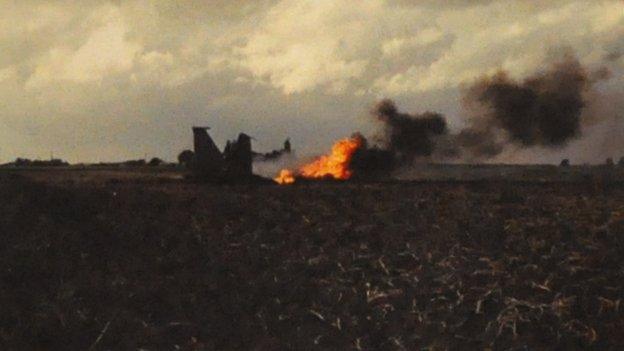Are US nuclear weapons set to return to RAF Lakenheath?
- Published
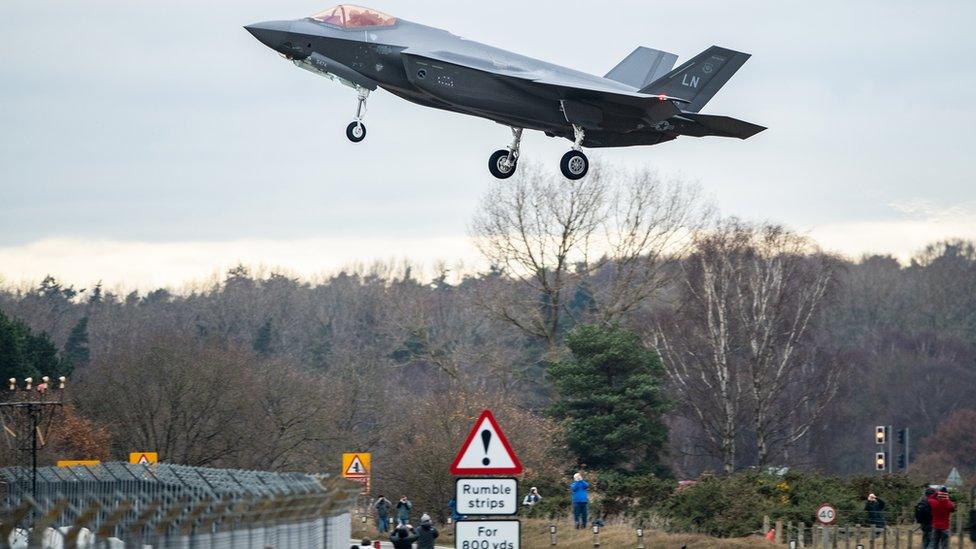
An F-35A Lightning II, which can carry nuclear weapons, landing at RAF Lakenheath
Nuclear weapons could be making a return to a United States Air Force base in Suffolk 15 years after it reportedly removed its last ones.
Documents indicate RAF Lakenheath is preparing facilities to house and guard bombs with an explosive power many times greater than the one dropped on Hiroshima at the end of World War Two.
What do we know about the plans?
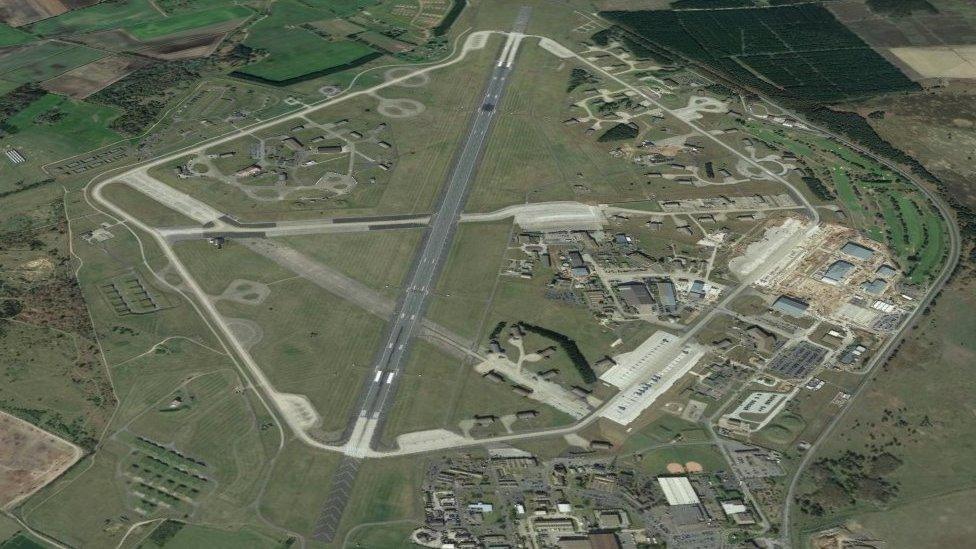
US government documents indicate that RAF Lakenheath, which is used solely by the United States Air Force, is being prepared to store nuclear weapons again
RAF Lakenheath is currently home to the 48th Fighter Wing, also known as the Liberty Wing, with the latest generation F-35A Lightning II aircraft stationed there.
According to the USAF, external these fighter jets have successfully been flight tested to carry the short-range B61-12 thermonuclear bomb, a tactical weapon designed for the battlefield.
Documents detailing a contract awarded to build defensive shelters for RAF Lakenheath's "upcoming nuclear mission" were published, and then withdrawn, external, by the US Department of Defense.
These mobile units would protect the troops assigned to defend the base, the 48th Security Forces Squadron.
In addition, millions of dollars have been earmarked to build a facility known as a "surety dormitory" at the base, which is understood to be storage facilities for nuclear weapons, according to a US Department of Defense budget document, external.
The RAF base opened in Lakenheath in 1941 and was operational during World War Two.
As the Cold War between Nato and the Soviet bloc intensified, the USAF assumed administrative control of the base in 1951, external.
There are 4,000 US military personnel and a further 1,500 British and US civilian staff at the site.
Will the weapons arrive in Suffolk?
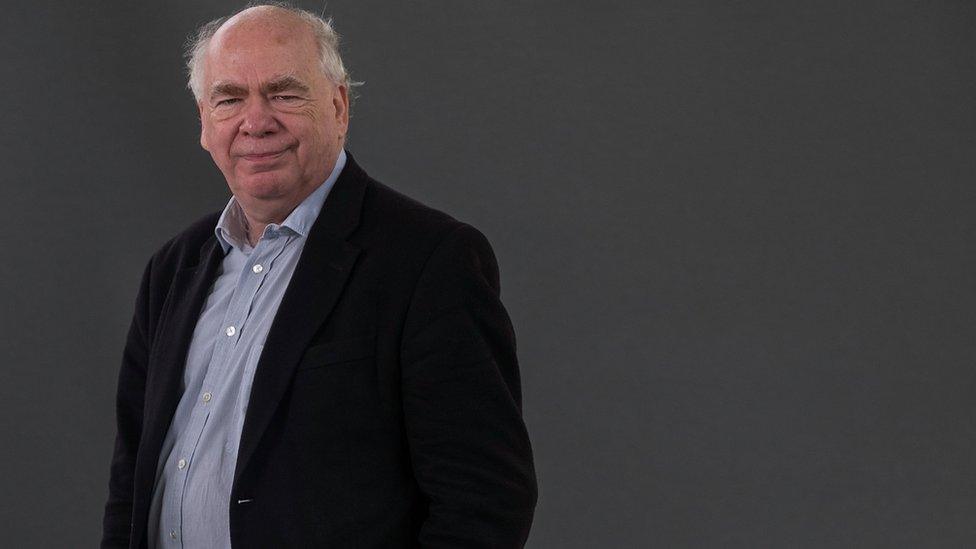
Prof Sir Lawrence Freedman said reports that nuclear weapons were coming to Suffolk should be treated with caution
Sir Lawrence Freedman, emeritus professor of war studies at King's College London, said there were "some suggestions" the plans were precautionary.
The shelters could just be extra capacity in the event other weapons had to be removed from storage sites in Europe, he added.
"It is one thing to build storage facility, it's another thing to hide the fact that American weapons are going to be based in Britain, so it may have quite a relatively mundane explanation rather than be some sort of dramatic escalation in the arms race," he said.
The UK and Nato have a long-standing policy to neither confirm nor deny the presence of nuclear weapons at a given location.
Why is this happening now?
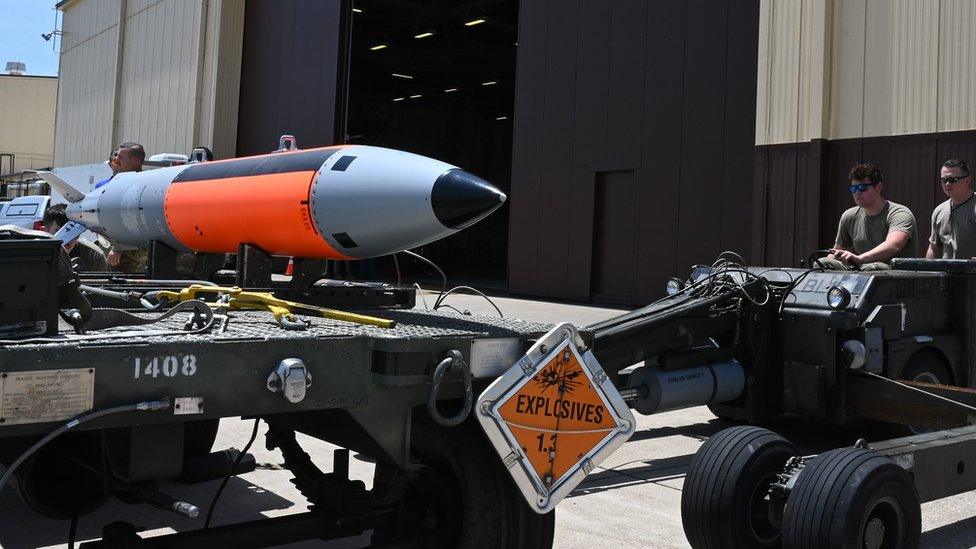
A B61-12 thermonuclear bomb being loaded onto an aircraft at Whiteman Air Force Base, Missouri
Sir Lawrence said he did not think the plans were specifically related to the situation in Ukraine.
"It is part of, I think, a general increasing of tension with Russia," he said.
"It also reflects the high priority given to short-range systems in Russian doctrine."
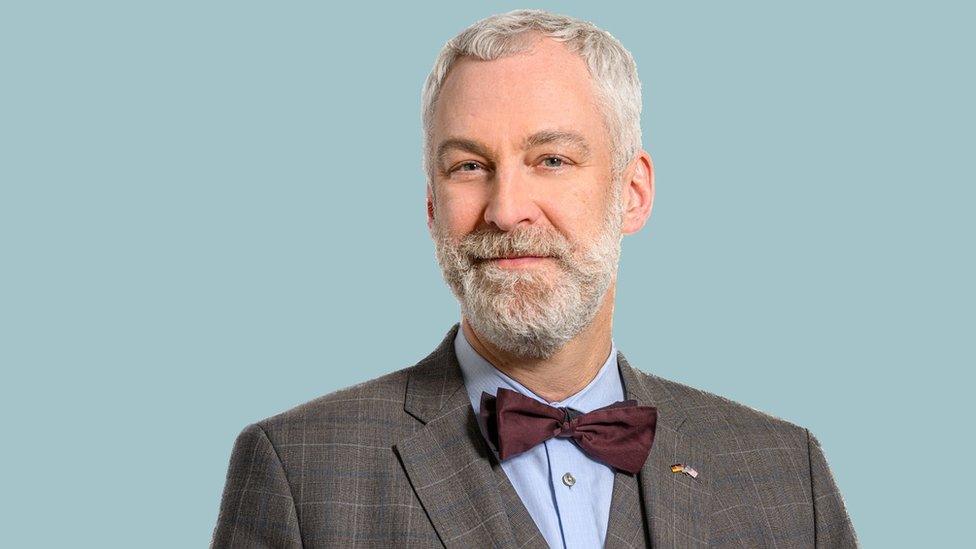
RAF Lakenheath is already a Russian target according to former senior Nato official William Alberque
But William Alberque, a former senior NATO official now with the International Institute for Strategic Studies, said it was a "response to an increasingly dangerous threat environment across Europe because of Russia's actions".
He cited the stationing of Russian nuclear forces in Belarus, the invasion of Ukraine and "wildly increased threats of nuclear weapons use by Vladimir Putin".
What does this mean for the base?
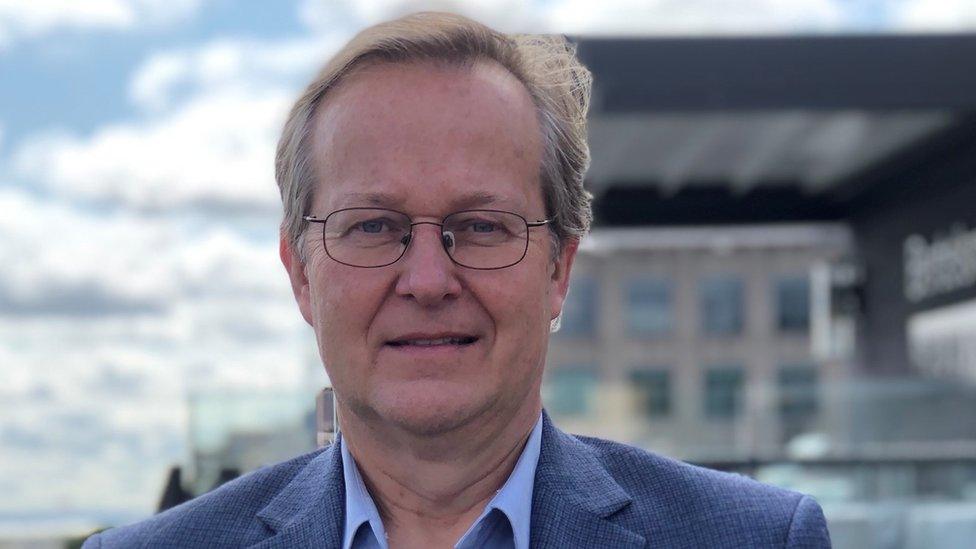
Hans Kristensen from the Federation of American Scientists has been monitoring the US Department of Defense's plans for RAF Lakenheath
Hans Kristensen, from the Federation of American Scientists, was among the first people to raise the possibility, external nuclear weapons could be returning to RAF Lakenheath.
"There is no doubt that if you have nuclear weapons on a base, that base is more likely to be targeted in a nuclear conflict with Russia," he said.
"There's no doubt that once you have nuclear weapons in, it's a different ball game."
Mr Alberque said it was "highly likely" the base was already a Russian target.
"If I'm a Russian military planner, I'm already going to hit it. If you watch Russian television, they talk about the UK a lot; they talk about nuking the UK a lot."
Mr Alberque believes Russian President Vladimir Putin would authorise the use of these weapons.
"To say he is capable of it would be an understatement. If he sees a lack of resolve and a lack of consequences I think he would," he said.
What happens next?
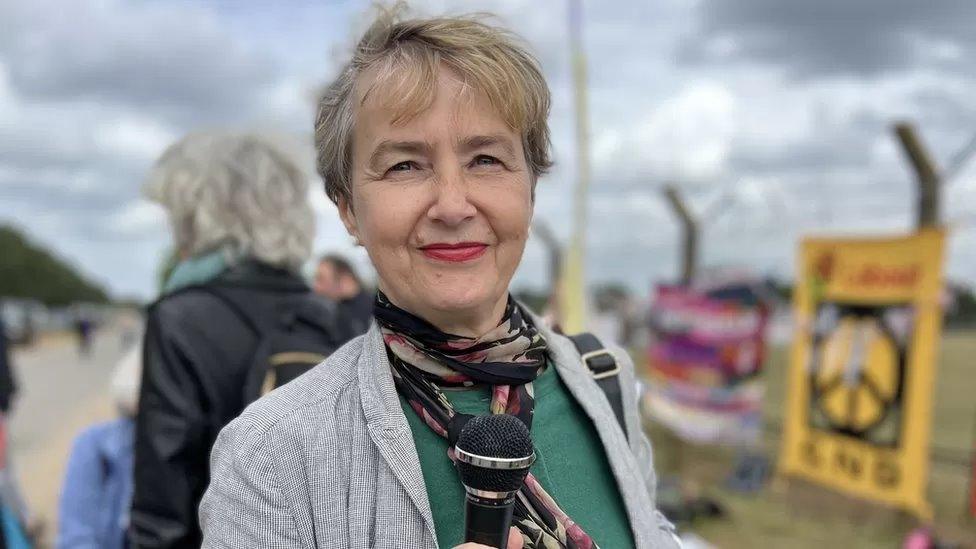
Kate Hudson from the Campaign for Nuclear Disarmament wants to ensure nuclear weapons are not stationed in Suffolk
The Campaign for Nuclear Disarmament (CND) has already protested outside the base.
CND general secretary Kate Hudson said: "If they're here, we're going to get rid of them."
The group has instructed law firm Leigh Day to look into whether building of the surety dormitory is lawful.
Lawyer Ricardo Gama said: "The [UK] Ministry of Defence says that the Lakenheath development won't lead to significant environmental effects, but in coming to that conclusion our client argues they have ignored the potential environmental effects of stationing nuclear weapons at the airbase, including the potential for nuclear accidents".

Follow East of England news on Facebook, external, Instagram, external and X, external. Got a story? Email eastofenglandnews@bbc.co.uk , externalor WhatsApp 0800 169 1830
- Published25 April 2023
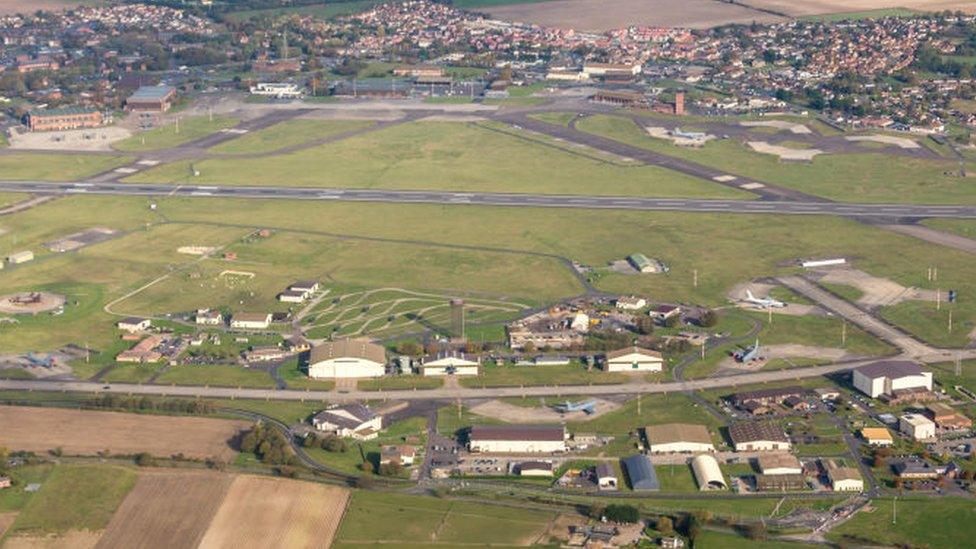
- Published29 September 2022
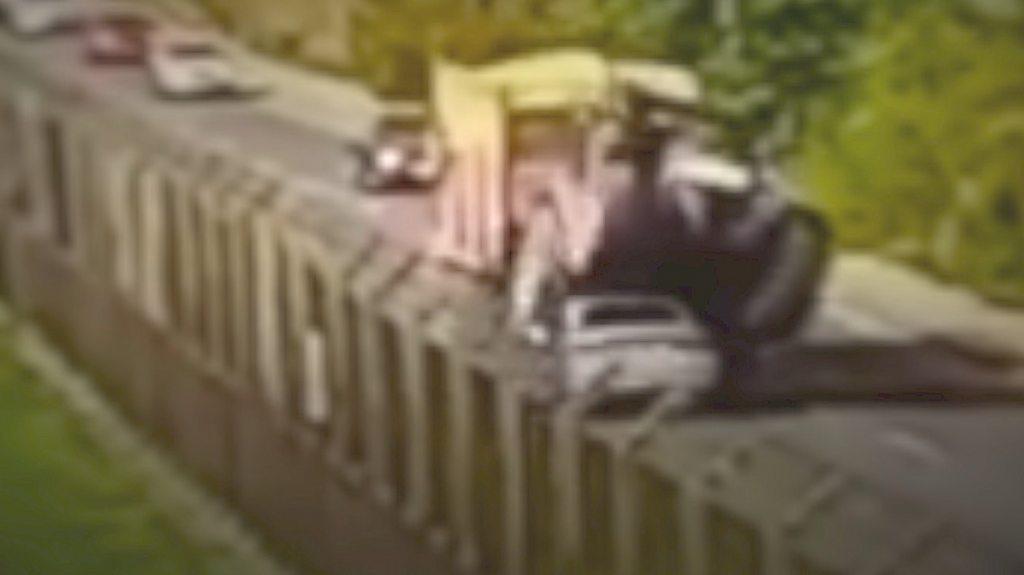
- Published15 June 2020
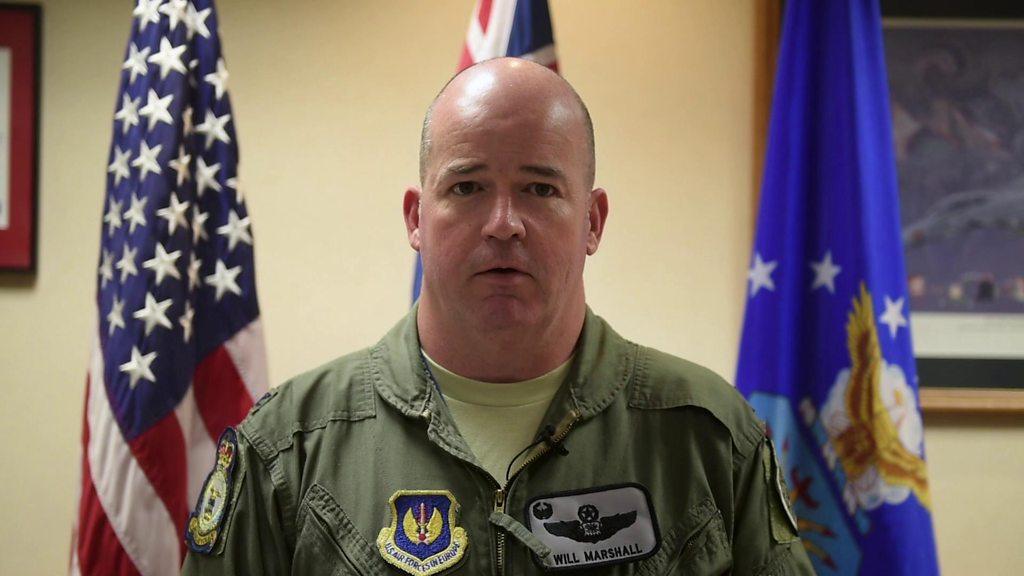
- Published31 July 2020
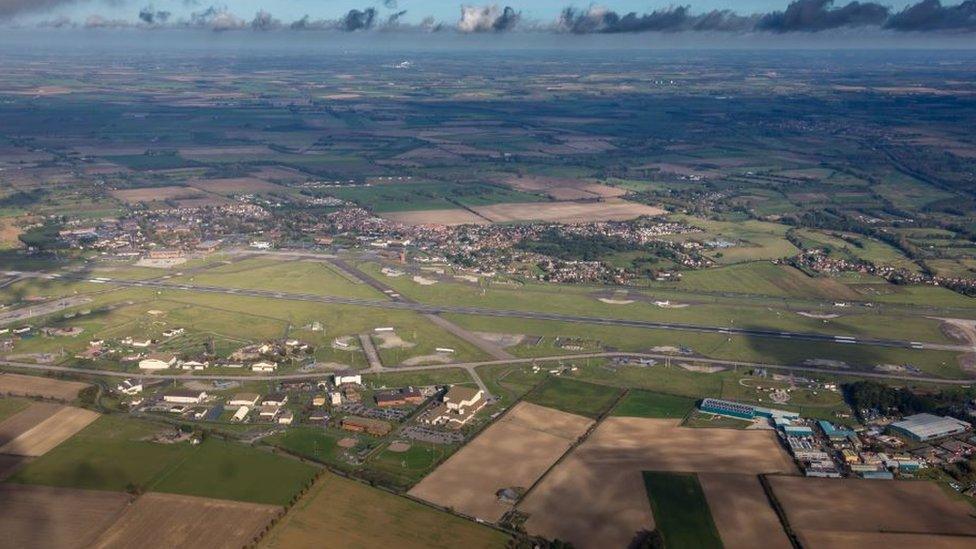
- Published9 May 2020
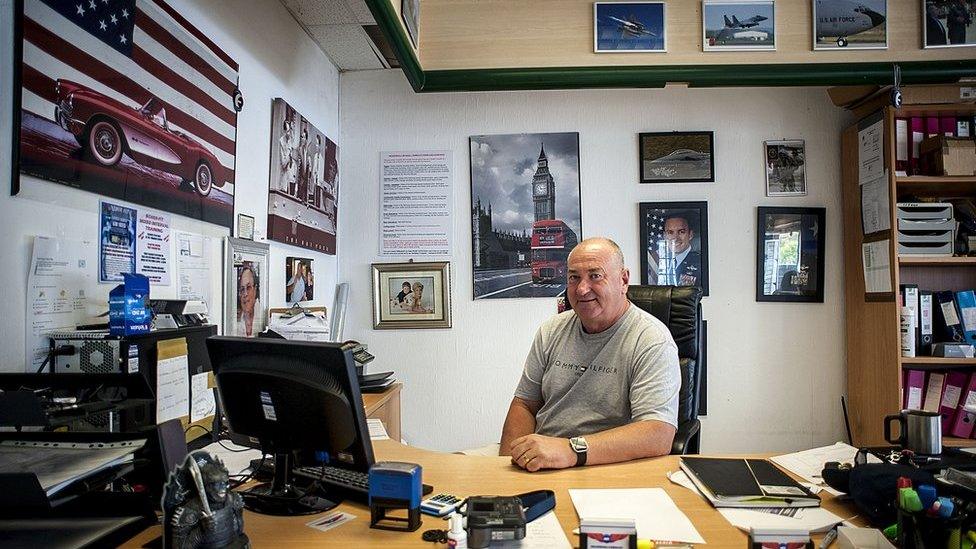
- Published13 March 2015
